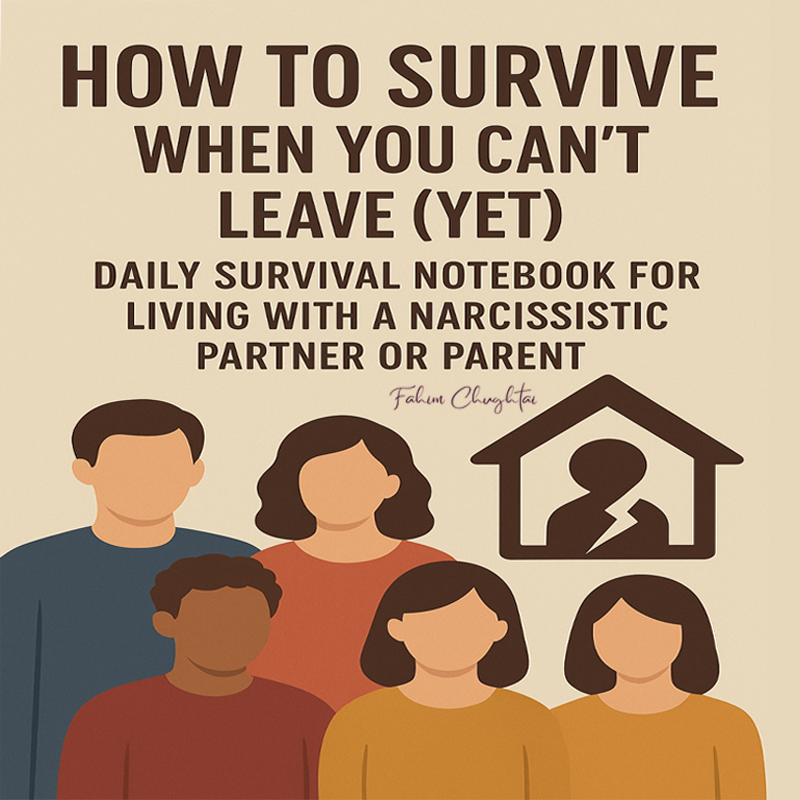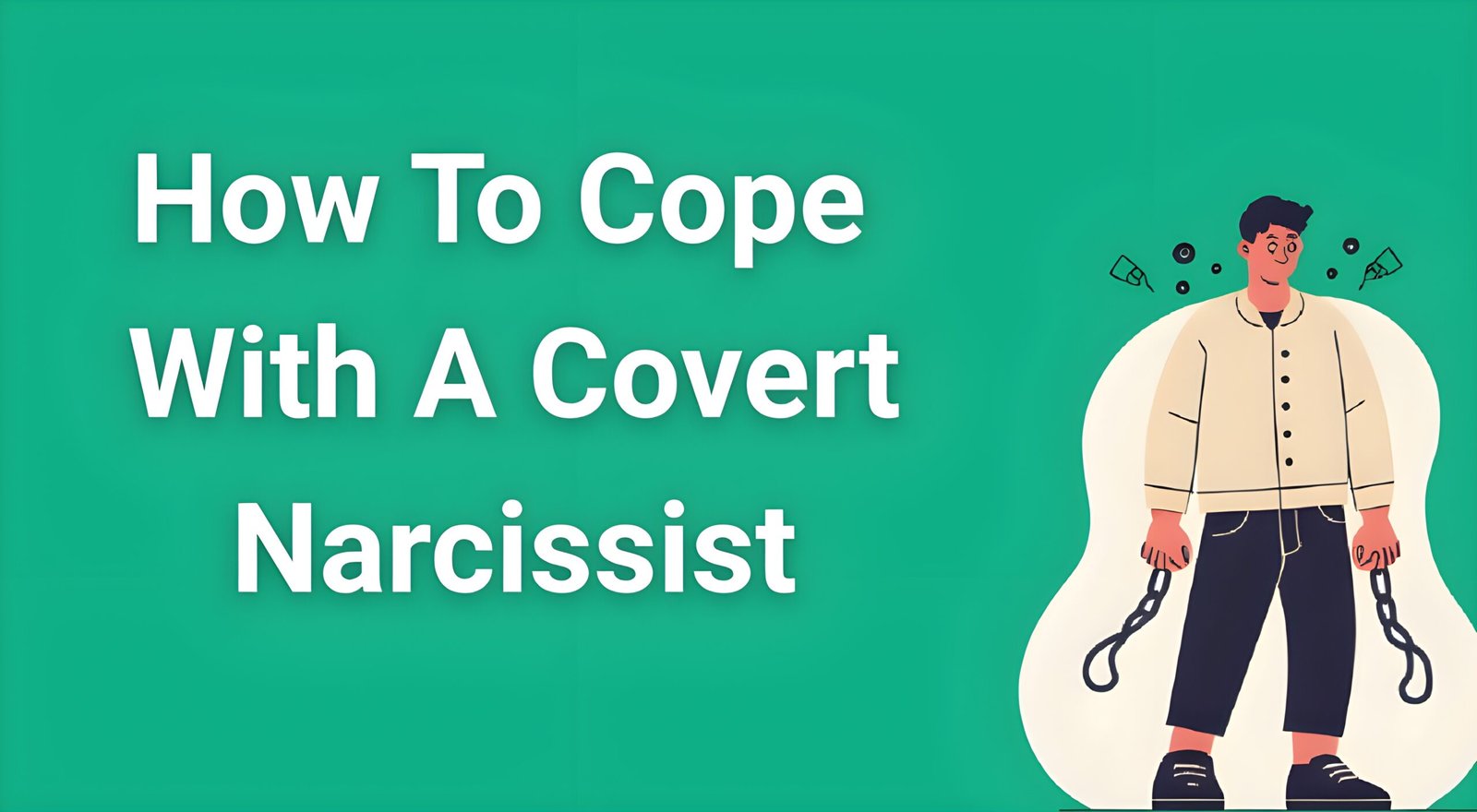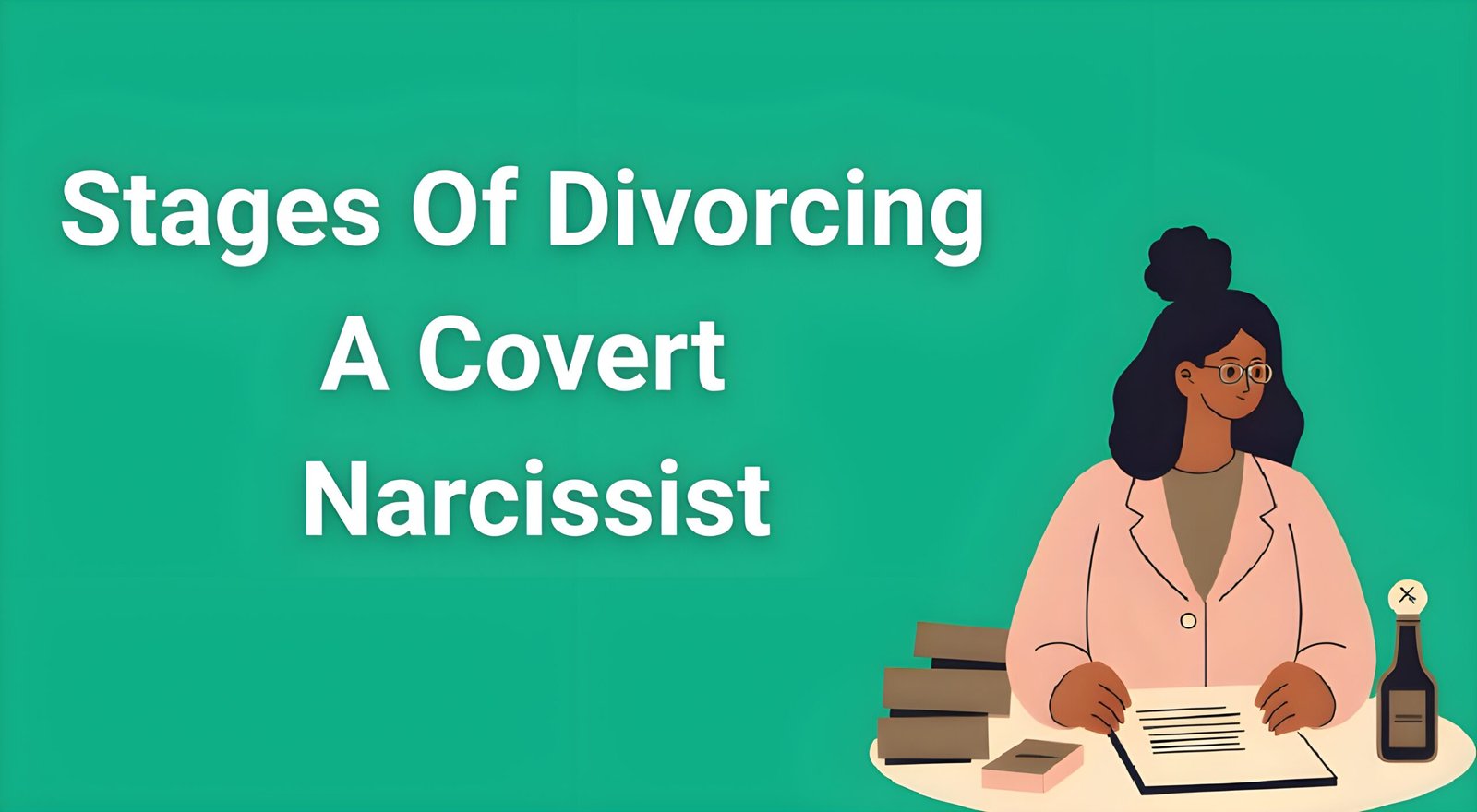That sick feeling in your stomach when you wake up. The constant walking on eggshells. The way they make you question your own memories and sanity. If you’re searching for how to cope with a covert narcissist, you’re likely trapped in one of the most confusing and draining relationship dynamics imaginable.
- Understanding Covert Narcissism: The Hidden Abuse
- 7 Essential Strategies to Cope with a Covert Narcissist
- Breaking the Trauma Bond: When You Can’t Seem to Leave
- Advanced Protection Strategies
- When You Need Expert Analysis of Your Situation
- The Recovery Roadmap: From Survival to Thriving
- Frequently Asked Questions
- Your Path Forward: From Confusion to Clarity
- Understanding Covert Narcissism: The Hidden Abuse
- 7 Essential Strategies to Cope with a Covert Narcissist
- Breaking the Trauma Bond: When You Can’t Seem to Leave
- Advanced Protection Strategies
- When You Need Expert Analysis of Your Situation
- The Recovery Roadmap: From Survival to Thriving
- Frequently Asked Questions
- Your Path Forward: From Confusion to Clarity
Unlike the obvious, grandiose narcissist who demands attention and admiration, a covert narcissist operates in the shadows. They appear modest, even humble, while systematically eroding your sense of reality and self-worth. The emotional manipulation is so subtle that you may have spent years wondering if you’re the problem.
You’re not crazy. What you’re experiencing is real, and there are proven strategies to protect yourself and begin healing.
Understanding Covert Narcissism: The Hidden Abuse
Covert narcissism, also known as vulnerable narcissism, represents one of the most insidious forms of emotional manipulation. While overt narcissists display their grandiosity openly, covert narcissists hide their sense of superiority behind a mask of humility, victimhood, or even apparent empathy.
Am I Dealing With a Covert Narcissist — or Just Toxic Behavior?
These individuals possess the same core traits as any narcissist—lack of empathy, sense of entitlement, and need for control—but express them through passive-aggressive behavior, emotional manipulation, and chronic victimhood. The result is a relationship that leaves you feeling confused, drained, and questioning your own perceptions.
The danger lies in how well they hide their true nature. You can be with a covert narcissist for years, even decades, and not see through their behavior. This extended exposure to subtle manipulation creates what experts call trauma bonds—psychological chains that make leaving feel impossible, even when you know the relationship is toxic.
7 Essential Strategies to Cope with a Covert Narcissist
1. Master the Art of Gray Rock Communication
When learning how to cope with a covert narcissist, your communication strategy becomes your first line of defense. The Gray Rock method involves becoming as uninteresting as possible during interactions.
Implementation steps:
- Respond with facts only, avoid emotional reactions
- Use phrases like “That’s interesting” or “I see” without elaborating
- Don’t share personal information, dreams, or vulnerabilities
- Keep conversations short and surface-level
This strategy works because covert narcissists feed on emotional reactions and personal information they can later use against you. When you become “boring,” you’re no longer a reliable source of narcissistic supply.
2. Document Everything: Your Reality Protection System
Covert narcissists excel at gaslighting—making you question your own memory and perception of events. They often create confusion, leaving victims doubting their own feelings and judgments, which makes covert narcissists difficult to confront.
Create your documentation system:
- Keep a private journal of conversations and incidents
- Save screenshots of text messages and emails
- Record dates, times, and witnesses when possible
- Note patterns of behavior and manipulation tactics
This isn’t about building a legal case—it’s about maintaining your sanity and sense of reality when they try to rewrite history.
3. Establish Unshakeable Boundaries
Setting boundaries with a covert narcissist requires strategic thinking because they’re experts at finding loopholes and pushing limits through guilt, manipulation, and passive-aggressive behavior.
Boundary setting framework:
- Identify your non-negotiables clearly
- Communicate boundaries factually, not emotionally
- Prepare for manipulation attempts and pushback
- Have consequences ready and be willing to enforce them
- Use the “broken record” technique—repeat your boundary calmly
Remember, boundaries aren’t about controlling their behavior—they’re about protecting yourself from the impact of their choices.
4. Build Your External Reality Check Network
Isolation is a key tool of covert narcissistic manipulation. They gradually separate you from friends and family who might validate your perceptions or offer alternative perspectives.
Rebuilding your support network:
- Reconnect with old friends and family members
- Join support groups for narcissistic abuse survivors
- Consider working with a therapist who understands narcissistic abuse
- Cultivate relationships outside the narcissist’s influence
- Share your experiences with trusted individuals
External validation helps counteract the gaslighting and reality distortion that covert narcissists create.
5. Develop Emotional Detachment Techniques
Each conversation can feel delicate, as you spend much of it trying to avoid saying something that will irritate them. After every encounter, you may feel completely sapped of energy. Learning emotional detachment is crucial for preserving your mental health.
Detachment practices:
- Remind yourself: “This is about them, not me”
- Visualize an emotional shield during interactions
- Practice deep breathing and grounding techniques
- Limit the time you spend in their presence
- Create mental distance by viewing their behavior objectively
Emotional detachment doesn’t mean becoming cold—it means protecting your emotional energy from their manipulation.
6. Recognize and Counter Common Manipulation Tactics
Covert narcissists use predictable manipulation strategies. Understanding these tactics helps you recognize and respond appropriately.
Common covert narcissist manipulation tactics:
- Silent treatment: Emotional punishment through withdrawal
- Guilt-tripping: Making you responsible for their emotions
- Playing victim: Portraying themselves as misunderstood or wronged
- Passive-aggressive behavior: Indirect expression of hostility
- Triangulation: Using others to make you jealous or insecure
Counter-strategies:
- Don’t chase during silent treatment—use the space for yourself
- Refuse to take responsibility for their emotional state
- Avoid defending yourself against false victim narratives
- Address passive-aggression directly and factually
- Don’t engage with triangulation attempts
7. Prioritize Intensive Self-Care and Identity Recovery
Living with a covert narcissist gradually erodes your sense of self. Rebuilding your identity and practicing self-care isn’t selfish—it’s essential for survival and recovery.
Self-care essentials:
- Engage in activities that bring you joy and confidence
- Practice mindfulness and meditation
- Exercise regularly to manage stress and anxiety
- Pursue hobbies and interests they’ve discouraged
- Spend time with people who appreciate your authentic self
Breaking the Trauma Bond: When You Can’t Seem to Leave
One of the most confusing aspects of a relationship with a covert narcissist is the trauma bond—an addiction-like attachment that forms through cycles of abuse and intermittent reinforcement. This isn’t weakness; it’s neuroscience.
The trauma bond creates a biochemical addiction stronger than many substances. Your brain literally believes you need this person to survive, which explains why willpower alone rarely works for leaving these relationships.
Understanding that you’re not weak—you’re neurologically addicted—is the first step toward breaking free. The cycle of emotional highs and lows creates powerful neural pathways that require specific strategies to rewire.
For those struggling with this addiction-like pull, specialized approaches focusing on the neurological aspects of trauma bonding have proven effective. The key is understanding that breaking a trauma bond requires more than willpower—it requires rewiring your brain’s response patterns through structured, daily practice.
Advanced Protection Strategies
Starve the Narcissistic Supply
Covert narcissists need constant validation and emotional reactions to maintain their sense of importance. Understanding their supply sources helps you avoid feeding their dysfunction.
Supply-starving techniques:
- Don’t react emotionally to their provocations
- Avoid defending yourself against their accusations
- Don’t seek their approval or validation
- Refuse to participate in drama or conflict
- Don’t share personal victories or vulnerabilities
Plan Your Exit Strategy (Even If You’re Not Ready to Leave)
Whether you’re planning to leave immediately or need to stay in the relationship for practical reasons, having an exit strategy provides psychological relief and practical preparation.
Exit planning components:
- Financial independence planning
- Safe housing options
- Legal consultation if needed
- Support network activation
- Personal document security
- Safety planning for potential escalation
For those who cannot leave their situation immediately due to financial, legal, or family constraints, specialized strategies exist for surviving and protecting yourself while trapped in these circumstances.
When You Need Expert Analysis of Your Situation
Sometimes, the gaslighting and manipulation are so effective that you genuinely can’t tell if what you’re experiencing is abuse or if you’re being “too sensitive.” The confusion is intentional—it’s designed to keep you questioning your reality instead of taking action.
If you find yourself asking questions like “Am I crazy or is this actually abuse?” or “Why do I feel like I’m walking on eggshells constantly?”, you may benefit from professional analysis of your specific situation.
Expert assessment can provide clarity about manipulation patterns, confirm your perceptions, and create a personalized action plan based on your unique circumstances. Having a professional validate your experience and provide specific strategies can be the turning point in your recovery journey.
The Recovery Roadmap: From Survival to Thriving
Coping with a covert narcissist isn’t just about surviving the relationship—it’s about healing the damage and preventing future narcissistic relationships.
Phase 1: Stabilization and Protection (Immediate)
- Implement safety strategies
- Begin documentation
- Establish basic boundaries
- Connect with support
Phase 2: Understanding and Validation (Weeks 2-4)
- Learn about covert narcissism
- Validate your experiences
- Begin therapy or support groups
- Strengthen your support network
Phase 3: Boundary Mastery and Detachment (Months 2-3)
- Perfect boundary-setting skills
- Master emotional detachment
- Develop consistent responses to manipulation
- Build independence and self-reliance
Phase 4: Identity Recovery and Future-Proofing (Months 4-6)
- Rebuild your sense of self
- Heal trauma responses
- Learn to trust your instincts again
- Develop healthy relationship patterns
Phase 5: Thriving and Helping Others (6+ Months)
- Live authentically without fear
- Maintain healthy relationships
- Recognize red flags immediately
- Potentially help other survivors
Frequently Asked Questions
Q: Can a covert narcissist change or get better with therapy? A: While personality disorders can be managed with intensive therapy, covert narcissists rarely seek genuine treatment because they don’t believe they have a problem. Improving a relationship with a covert narcissist can be impossible since harmony and love is not their goal. Change requires genuine self-awareness and motivation that most narcissists lack.
Q: How do I know if I’m dealing with a covert narcissist or just someone with difficult personality traits? A: The key difference lies in the pattern of manipulation and the impact on your mental health. Covert narcissists consistently engage in gaslighting, emotional manipulation, and control tactics that leave you questioning your reality and feeling emotionally drained.
Q: Should I try to expose a covert narcissist to others? A: Generally, no. Covert narcissists are skilled at managing their public image and may turn others against you. Focus on building your own support network and protecting yourself rather than trying to convince others of the narcissist’s true nature.
Q: How long does it take to recover from a relationship with a covert narcissist? A: Recovery time varies based on the relationship length, abuse severity, and individual factors. Many survivors report significant improvement within 6-12 months of implementing proper coping strategies, though full healing may take longer.
Q: Can children develop trauma from a covert narcissistic parent? A: Yes, children are particularly vulnerable to covert narcissistic abuse because they depend on their parents for reality-testing and emotional security. The subtle manipulation can create lasting impacts on self-esteem, relationship patterns, and emotional regulation.
Q: What’s the difference between setting boundaries and being controlling? A: Boundaries protect your own well-being and define what you will and won’t accept. Controlling behavior attempts to manage another person’s choices and actions. Healthy boundaries focus on your response to their behavior, not changing their behavior.
Your Path Forward: From Confusion to Clarity
Learning how to cope with a covert narcissist is ultimately about reclaiming your reality, protecting your mental health, and rebuilding your sense of self. The strategies outlined in this guide aren’t just theoretical—they’re battle-tested approaches used by thousands of survivors to break free from these toxic dynamics.
Remember that healing isn’t linear. You may have setbacks, moments of doubt, or times when you question whether you’re doing the right thing. This is normal and part of the recovery process. The important thing is that you’re taking action to protect yourself and rebuild your life.
The confusion and emotional chaos you’ve experienced weren’t your fault, but your healing is your responsibility. With the right strategies, support, and commitment to your own well-being, you can move from merely surviving to truly thriving.
You deserve relationships built on respect, authenticity, and genuine care. The first step toward that future is protecting yourself today. Your journey to freedom and healing begins with the next choice you make—choose yourself.
That sick feeling in your stomach when you wake up. The constant walking on eggshells. The way they make you question your own memories and sanity. If you’re searching for how to cope with a covert narcissist, you’re likely trapped in one of the most confusing and draining relationship dynamics imaginable.
Unlike the obvious, grandiose narcissist who demands attention and admiration, a covert narcissist operates in the shadows. They appear modest, even humble, while systematically eroding your sense of reality and self-worth. The emotional manipulation is so subtle that you may have spent years wondering if you’re the problem.
You’re not crazy. What you’re experiencing is real, and there are proven strategies to protect yourself and begin healing.
Understanding Covert Narcissism: The Hidden Abuse
Covert narcissism, also known as vulnerable narcissism, represents one of the most insidious forms of emotional manipulation. While overt narcissists display their grandiosity openly, covert narcissists hide their sense of superiority behind a mask of humility, victimhood, or even apparent empathy.
These individuals possess the same core traits as any narcissist—lack of empathy, sense of entitlement, and need for control—but express them through passive-aggressive behavior, emotional manipulation, and chronic victimhood. The result is a relationship that leaves you feeling confused, drained, and questioning your own perceptions.
The danger lies in how well they hide their true nature. You can be with a covert narcissist for years, even decades, and not see through their behavior. This extended exposure to subtle manipulation creates what experts call trauma bonds—psychological chains that make leaving feel impossible, even when you know the relationship is toxic.
7 Essential Strategies to Cope with a Covert Narcissist
1. Master the Art of Gray Rock Communication
When learning how to cope with a covert narcissist, your communication strategy becomes your first line of defense. The Gray Rock method involves becoming as uninteresting as possible during interactions.
Implementation steps:
- Respond with facts only, avoid emotional reactions
- Use phrases like “That’s interesting” or “I see” without elaborating
- Don’t share personal information, dreams, or vulnerabilities
- Keep conversations short and surface-level
This strategy works because covert narcissists feed on emotional reactions and personal information they can later use against you. When you become “boring,” you’re no longer a reliable source of narcissistic supply.
2. Document Everything: Your Reality Protection System
Covert narcissists excel at gaslighting—making you question your own memory and perception of events. They often create confusion, leaving victims doubting their own feelings and judgments, which makes covert narcissists difficult to confront.
Create your documentation system:
- Keep a private journal of conversations and incidents
- Save screenshots of text messages and emails
- Record dates, times, and witnesses when possible
- Note patterns of behavior and manipulation tactics
This isn’t about building a legal case—it’s about maintaining your sanity and sense of reality when they try to rewrite history.
3. Establish Unshakeable Boundaries
Setting boundaries with a covert narcissist requires strategic thinking because they’re experts at finding loopholes and pushing limits through guilt, manipulation, and passive-aggressive behavior.
Boundary setting framework:
- Identify your non-negotiables clearly
- Communicate boundaries factually, not emotionally
- Prepare for manipulation attempts and pushback
- Have consequences ready and be willing to enforce them
- Use the “broken record” technique—repeat your boundary calmly
Remember, boundaries aren’t about controlling their behavior—they’re about protecting yourself from the impact of their choices.
4. Build Your External Reality Check Network
Isolation is a key tool of covert narcissistic manipulation. They gradually separate you from friends and family who might validate your perceptions or offer alternative perspectives.
Rebuilding your support network:
- Reconnect with old friends and family members
- Join support groups for narcissistic abuse survivors
- Consider working with a therapist who understands narcissistic abuse
- Cultivate relationships outside the narcissist’s influence
- Share your experiences with trusted individuals
External validation helps counteract the gaslighting and reality distortion that covert narcissists create.
5. Develop Emotional Detachment Techniques
Each conversation can feel delicate, as you spend much of it trying to avoid saying something that will irritate them. After every encounter, you may feel completely sapped of energy. Learning emotional detachment is crucial for preserving your mental health.
Detachment practices:
- Remind yourself: “This is about them, not me”
- Visualize an emotional shield during interactions
- Practice deep breathing and grounding techniques
- Limit the time you spend in their presence
- Create mental distance by viewing their behavior objectively
Emotional detachment doesn’t mean becoming cold—it means protecting your emotional energy from their manipulation.
6. Recognize and Counter Common Manipulation Tactics
Covert narcissists use predictable manipulation strategies. Understanding these tactics helps you recognize and respond appropriately.
Common covert narcissist manipulation tactics:
- Silent treatment: Emotional punishment through withdrawal
- Guilt-tripping: Making you responsible for their emotions
- Playing victim: Portraying themselves as misunderstood or wronged
- Passive-aggressive behavior: Indirect expression of hostility
- Triangulation: Using others to make you jealous or insecure
Counter-strategies:
- Don’t chase during silent treatment—use the space for yourself
- Refuse to take responsibility for their emotional state
- Avoid defending yourself against false victim narratives
- Address passive-aggression directly and factually
- Don’t engage with triangulation attempts
7. Prioritize Intensive Self-Care and Identity Recovery
Living with a covert narcissist gradually erodes your sense of self. Rebuilding your identity and practicing self-care isn’t selfish—it’s essential for survival and recovery.
Self-care essentials:
- Engage in activities that bring you joy and confidence
- Practice mindfulness and meditation
- Exercise regularly to manage stress and anxiety
- Pursue hobbies and interests they’ve discouraged
- Spend time with people who appreciate your authentic self
Breaking the Trauma Bond: When You Can’t Seem to Leave
One of the most confusing aspects of a relationship with a covert narcissist is the trauma bond—an addiction-like attachment that forms through cycles of abuse and intermittent reinforcement. This isn’t weakness; it’s neuroscience.
Still Living With Them? You’re Not Helpless.

The trauma bond creates a biochemical addiction stronger than many substances. Your brain literally believes you need this person to survive, which explains why willpower alone rarely works for leaving these relationships.
Understanding that you’re not weak—you’re neurologically addicted—is the first step toward breaking free. The cycle of emotional highs and lows creates powerful neural pathways that require specific strategies to rewire.
For those struggling with this addiction-like pull, specialized approaches focusing on the neurological aspects of trauma bonding have proven effective. The key is understanding that breaking a trauma bond requires more than willpower—it requires rewiring your brain’s response patterns through structured, daily practice.
Advanced Protection Strategies
Starve the Narcissistic Supply
Covert narcissists need constant validation and emotional reactions to maintain their sense of importance. Understanding their supply sources helps you avoid feeding their dysfunction.
Supply-starving techniques:
- Don’t react emotionally to their provocations
- Avoid defending yourself against their accusations
- Don’t seek their approval or validation
- Refuse to participate in drama or conflict
- Don’t share personal victories or vulnerabilities
Plan Your Exit Strategy (Even If You’re Not Ready to Leave)
Whether you’re planning to leave immediately or need to stay in the relationship for practical reasons, having an exit strategy provides psychological relief and practical preparation.
You’ve Seen the Patterns. Now Break the Bond.
Exit planning components:
- Financial independence planning
- Safe housing options
- Legal consultation if needed
- Support network activation
- Personal document security
- Safety planning for potential escalation
For those who cannot leave their situation immediately due to financial, legal, or family constraints, specialized strategies exist for surviving and protecting yourself while trapped in these circumstances.
When You Need Expert Analysis of Your Situation
Sometimes, the gaslighting and manipulation are so effective that you genuinely can’t tell if what you’re experiencing is abuse or if you’re being “too sensitive.” The confusion is intentional—it’s designed to keep you questioning your reality instead of taking action.
If you find yourself asking questions like “Am I crazy or is this actually abuse?” or “Why do I feel like I’m walking on eggshells constantly?”, you may benefit from professional analysis of your specific situation.
Expert assessment can provide clarity about manipulation patterns, confirm your perceptions, and create a personalized action plan based on your unique circumstances. Having a professional validate your experience and provide specific strategies can be the turning point in your recovery journey.
The Recovery Roadmap: From Survival to Thriving
Coping with a covert narcissist isn’t just about surviving the relationship—it’s about healing the damage and preventing future narcissistic relationships.
Phase 1: Stabilization and Protection (Immediate)
- Implement safety strategies
- Begin documentation
- Establish basic boundaries
- Connect with support
Phase 2: Understanding and Validation (Weeks 2-4)
- Learn about covert narcissism
- Validate your experiences
- Begin therapy or support groups
- Strengthen your support network
Phase 3: Boundary Mastery and Detachment (Months 2-3)
- Perfect boundary-setting skills
- Master emotional detachment
- Develop consistent responses to manipulation
- Build independence and self-reliance
Phase 4: Identity Recovery and Future-Proofing (Months 4-6)
- Rebuild your sense of self
- Heal trauma responses
- Learn to trust your instincts again
- Develop healthy relationship patterns
Phase 5: Thriving and Helping Others (6+ Months)
- Live authentically without fear
- Maintain healthy relationships
- Recognize red flags immediately
- Potentially help other survivors
Frequently Asked Questions
Q: Can a covert narcissist change or get better with therapy?
A: While personality disorders can be managed with intensive therapy, covert narcissists rarely seek genuine treatment because they don’t believe they have a problem. Improving a relationship with a covert narcissist can be impossible since harmony and love is not their goal. Change requires genuine self-awareness and motivation that most narcissists lack.
Q: How do I know if I’m dealing with a covert narcissist or just someone with difficult personality traits? A: The key difference lies in the pattern of manipulation and the impact on your mental health. Covert narcissists consistently engage in gaslighting, emotional manipulation, and control tactics that leave you questioning your reality and feeling emotionally drained.
Q: Should I try to expose a covert narcissist to others?
A: Generally, no. Covert narcissists are skilled at managing their public image and may turn others against you. Focus on building your own support network and protecting yourself rather than trying to convince others of the narcissist’s true nature.
Q: How long does it take to recover from a relationship with a covert narcissist?
A: Recovery time varies based on the relationship length, abuse severity, and individual factors. Many survivors report significant improvement within 6-12 months of implementing proper coping strategies, though full healing may take longer.
Q: Can children develop trauma from a covert narcissistic parent?
A: Yes, children are particularly vulnerable to covert narcissistic abuse because they depend on their parents for reality-testing and emotional security. The subtle manipulation can create lasting impacts on self-esteem, relationship patterns, and emotional regulation.
Q: What’s the difference between setting boundaries and being controlling?
A: Boundaries protect your own well-being and define what you will and won’t accept. Controlling behavior attempts to manage another person’s choices and actions. Healthy boundaries focus on your response to their behavior, not changing their behavior.
Your Path Forward: From Confusion to Clarity
Learning how to cope with a covert narcissist is ultimately about reclaiming your reality, protecting your mental health, and rebuilding your sense of self. The strategies outlined in this guide aren’t just theoretical—they’re battle-tested approaches used by thousands of survivors to break free from these toxic dynamics.
Remember that healing isn’t linear. You may have setbacks, moments of doubt, or times when you question whether you’re doing the right thing. This is normal and part of the recovery process. The important thing is that you’re taking action to protect yourself and rebuild your life.
The confusion and emotional chaos you’ve experienced weren’t your fault, but your healing is your responsibility. With the right strategies, support, and commitment to your own well-being, you can move from merely surviving to truly thriving.
You deserve relationships built on respect, authenticity, and genuine care. The first step toward that future is protecting yourself today. Your journey to freedom and healing begins with the next choice you make—choose yourself.






